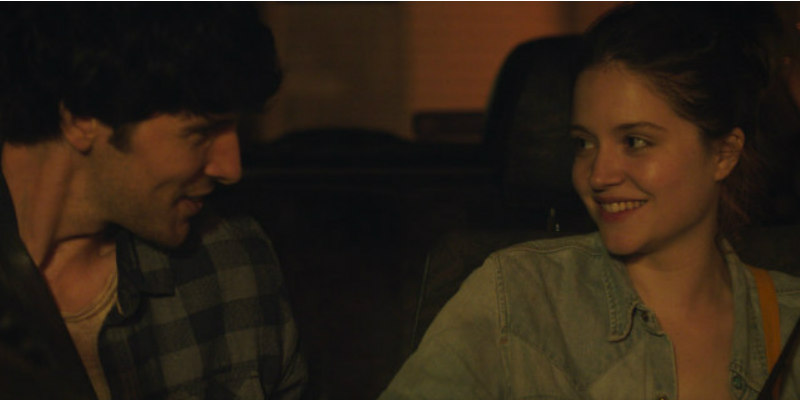Review by
Benjamin Poole
Directed by: Charles Garrad
Starring: Colin Morgan, Fanny Ardant, Audrey
Bastien, Abdelkrim Bahloul, Clare Holman

How much do we owe our parents, and, perhaps more pertinent to
Waiting for You’s dramatic excavation of familial skeletons locked away in antique La
Rochelle closets, what is the extent of a parent’s obligation towards their
children? At the beginning of Charles Garrad’s gentle melodrama, Paul
(Colin Morgan) shows supreme fealty to his poor old dad, who is
ensconced within a hospice, on his last legs and still experiencing vivid
PTSD from the Second World War. Paul is there to hold his father’s hands as
he rambles anxiously about the horror of war, and sooth him when the pain
reaches crescendo. It’s a relief to swap shifts with his, still perfectly
healthy, mum (Clare Holman), and, finally, something of a mercy when
Paul’s father passes on; although, as Paul is told, a part of his father had
"died in the war," already.


Post-mortem, the action shifts from cold British realism to the balmy climes of French Dordogne, as Paul attempts to unravel the dark secrets of his father’s infantry past. Receiving a box of his dad’s stuff, Paul shifts through old ‘45s, and, in the sleeve of a Georgie Fame (!) single, happens upon an envelope which contains a picture of his dad with a mysterious (gorgeous) lady in the land of le Tricolore (I thought this was a lovely touch; apart from, I imagine, football teams, music is such a universal aspect of father and son bonding). So, what Paul does on receiving this information is immediately up sticks and shoot down the chunnel in order to set himself up in the French village depicted within the correspondence.
[ READ MORE: New Release Review - Cha Cha Real Smooth ]
The film then settles into a comfortable, reasonably absorbing mystery. The
cryptic woman with whom his father was photographed turns out to be a Miss
Havisham-esque character (Madeline, played by the astonishing
Fanny Ardant) who resides within a gothic mansion in the lush
hinterland, playing her piano over and over for an audience of her memories.
Paul gives it some flannel about being on a research trip for his
architecture degree and asks if he can canvas Madeline’s impressive pile for
his class, a cunning ruse which will allow him access to the secrets
within.


Initially, Paul’s actions seem a bit odd, and inappropriately obsessive. Whatever his father did (and, the initial transgression at least seems pretty evident) happened in the far past, under circumstances which were at best compromised and which the poor old fella seems to have been paying for ever since. Each and every one of us has done, and will probably do, things which really should be kept private for the benefit of all concerned. Come on, Paul, let it go. As the film continues though, it is suggested that Paul is perhaps experiencing a post-trauma of his own and his hasty flight could just be an attempt to outrun his own grief. Certainly, it seems as if he has very little going on in his own life, and as the shadowy Madeline instructs him, he should "be in the moment." Mind you, she can talk, as it looks as if she’s been preserved in aspic herself until Paul’s untimely arrival…

The emotional punch of Waiting for You is to be found in what the film leaves unsaid, as if in subtle mimesis of its central theme, which suggests that people are essentially unknowable, and, despite our perceived closeness to a person, we only ever glimpse their essence in the spare moments of actions, speech and their art. There is reliance upon contrivance in Waiting for You, and the film asks a lot of us to accept its central premise (would this incredible, cultured woman really lock herself away for decades following a mishap years ago?). In a double entendre, the film’s title could pertain to the audience itself, as while Waiting for You is a perfectly engrossing watch, the full effects of the narrative rely on how much of yourself you’re willing to give over to its mysteries and broken emotional bonds.

Waiting for You is on Prime Video UK
now.

